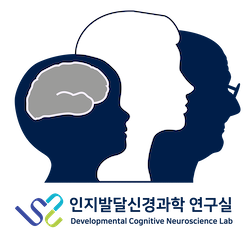Current Research Aims
Spatiotemporal Episodic Memory
Throughout our daily lives, we acquire a tremendous amount of information under various circumstances and across many spatiotemporal contexts. How does our brain package, sequence, and retrieve our experiences as memories? Our lab studies the neurocognitive mechanisms underlying episodic and spatial memory in the human brain using various types of cognitive tasks such as visual scene recognition, spatial navigation, and VR-based events, combined with neuroimaging (fMRI, fNIRS), electroencephalography (scalp, intracranial). By understanding the mechanisms of human memory, how it is represented in the brain, and what makes those representations change, we are working to develop digital techniques that can enhance our cognitive performance (e.g., training, stimulation, neurofeedback). Furthermore, we are collaborating with AI researchers to develop brain-inspired models of adaptive memory and concept formation.

Neurocognitive Development
The study of cognitive development provides a unique window into how the mind works and changes over time and experience. To understand the developmental origins of abstract conceptual representations underlying uniquely human cognitive abilities such as Euclidean geometry and mental time travel, we are conducting research with children of all ages (from infancy to late childhood). We are currently exploring these questions in spatial cognition, episodic memory, metamemory, and multisensory learning in the form of simple child-friendly games, observing both behavioral and neural responses using safe biometric and neural measurement tools such as eye-tracking, FDA-approved EEG and fNIRS. Furthermore, to investigate the developmental factors that contribute to brain and mental health, we are conducting a longitudinal study on the interaction between neurocognitive function and stress in children and adolescents as part of a collaboration with other researchers in the field of neuroscience, psychology, education, and psychiatry, aimed to build a developmental neuroimaging bio-bank in Korea.

Aging and Memory
Our research team is also investigating individual differences in age-related cognitive decline using a “neuro-cognotyping” approach to memory. We are using evaluative tasks of cortico-hippocampal episodic memory combined with neuroimaging (fMRI, fNIRS), electroencephalography (EEG) to cluster subjects into types and, by doing so, more accurately predict individual trajectories in brain aging. We are also conducting research to develop preventive digital therapies for brain aging through cognitive modulation methods such as perceptual stimulation and neural training.

Emotion-Cognition Interaction
With the rapidly increasing prevalence of affective disorders such as depression and anxiety, there is a need to better understand the interaction between emotions and higher level human cognition. . In our lab, we are currently conducting research on how alterations in emotional processing can influence cognitive abilities such as attention and memory and how, in some cases, the change occurs in the other direction (from attention/memory to emotional processing). By understanding these interactions and their neural correlates, we aim to clarify the neurocognitive basis of affective disorders and explore new ways to prevent or treat them. Combining our scientific knowledge with various cognitive training and gamification we are developing new digital therapy applications and platforms for screening, monitoring, and treating mental disorders.

